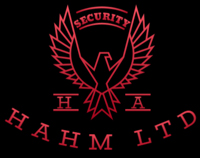Close Protection Training - Close Protection Officer
In order to adequately prepare you for the realities of life as a Close Protection Operative, our training providers purposefully make the course fast-paced. It is quick, physically and mentally taxing, and unpredictable.
Nevertheless, do not let the fact that you will have to take tests deter you. Everything you need to know is covered in the Close Protection training course, and your knowledgeable instructor will set you up for success.
Whou should do this course?
Anyone who wishes to operate lawfully as a Close Protection Officer (CPO), sometimes known as a bodyguard, must complete the Close Protection Training Course.
For self-assured newcomers, seasoned security experts, and former military and law enforcement officers, obtaining a CPO SIA Licence can be a fulfilling career decision.
The 16–19 day Close Protection Training covers the knowledge, abilities, and practicals to assist you get ready for the test.
What you will be able to do?
With a CPO license, you can find yourself in the following roles:
- VIP and celebrity bodyguarding
- High net worth people’ protection
- Private overseas assignments
- Protection of assets for luxury shops
- Home safety
What is the potential income for a Close Protection Officer?
Obtaining a CP Licence is often reserved for security professionals who are dedicated to long-term career advancement in this field, and it requires a significant time and financial investment.
Close Protection Officers can earn between £200 and £400 a day when they are qualified, based on their experience, assignment, level of danger, and negotiation skills with their employer.
The Close Protection Course lasts 19 days and is divided into 3 parts to give enough time to teach the wide range of advanced abilities needed for bodyguard work:
- Unit 1: Private Security Industry Work
- Unit 2: Close Protection Operative Work
- Unit 3: Conflict Resolution
Content of the Close Protection Course
The following topics are covered in the course:
- Law and Acts
- A CPO’s Duties and Roles in Threat and Risk Assessment
- Operations for Venue Security and Incident Management
- Theoretical and practical aspects of reconnaissance
- CPO Etiquette & Protocol
- Planning for Operations
- Choosing a Route
- Foot Formations
- Vehicle Strategies
- Debus/Embus
- Procedures for personal, vehicle, and property searches
- Monitoring (real-time situations)
